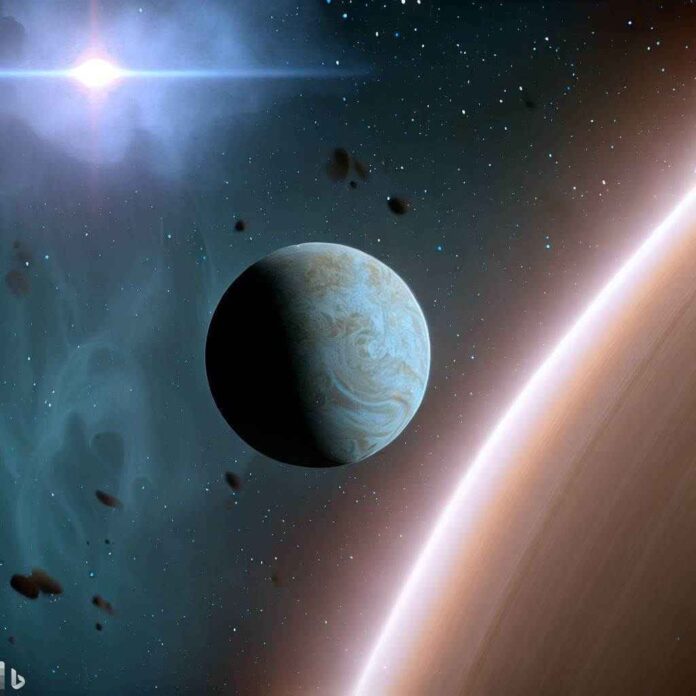In 1906, astronomer Percival Lowell began a search for a hypothetical giant planet beyond Neptune, which he called Planet X. Lowell believed that Planet X existed based on some supposed irregularities he had observed in the orbits of Neptune and Uranus. However, the discovery of Pluto in 1930 led to the discrediting of the Planet X hypothesis, as scientists determined that Pluto was too small to have a gravitational impact on Neptune’s orbit.
In recent years, however, there has been renewed interest in the possibility of Planet X. This is due in part to the discovery of a number of large objects in the Kuiper Belt, a region of icy bodies beyond Neptune. Some scientists believe that these objects may be fragments of a larger planet that was destroyed in the early solar system.
A new study, published in the preprint server arXiv and has yet to be peer-reviewed, suggests that there is a possibility that one or more planet-size bodies may have come to rest in the Oort cloud, a vast collection of icy objects stretching between a few hundred billion to several trillion miles from the sun. The study, which was conducted by an international team of researchers, was based on simulations of the unstable celestial mechanics of the early solar system.
The researchers found that it is possible that large pieces of debris, even planet-size ones, could have been hurled far enough to escape the sun’s gravity altogether. Scientists have observed such “rogue planets” wandering around in distant solar systems, and the researchers calculate that there is about a 0.5% chance that one of these wayward planets might have formed in our own system and ended up in the Oort cloud.
However, the researchers also calculate that it is slightly more likely that a rogue, Neptune-like planet from another solar system was snagged by the sun’s gravity and came to rest somewhere in the Oort cloud. The chances of this are about 7%, and if this is the case, then an object akin to Lowell’s long-sought Planet X might be out there after all, though it would still be too far away to influence Neptune’s orbit.
The researchers conclude that it is most likely that the Oort cloud is made of a collection of much smaller icy objects, but given the size and distance of the Oort cloud, we may never know for sure what’s lurking out there.
The study’s findings have generated excitement among astronomers, who are eager to learn more about the possibility of Planet X. However, it is important to note that the study has not yet been peer-reviewed, and the results should be interpreted with caution.
Even if there is no Planet X lurking in the Oort cloud, the study’s findings provide new insights into the formation and evolution of the solar system. The researchers’ simulations suggest that the early solar system was a much more chaotic place than previously thought, and that large objects could have been flung far out into space. This could have implications for the search for other planets in our galaxy, as well as for the understanding of how planets form and evolve.
The study’s findings are also significant because they suggest that the Oort cloud may be a more dynamic place than previously thought. The researchers’ simulations show that objects in the Oort cloud could be perturbed by the gravity of passing stars, which could send them on new orbits. This could explain why some of the objects in the Kuiper Belt have highly elliptical orbits.
The study’s findings are still preliminary, but they provide a tantalizing glimpse into the possibility of Planet X and the mysteries of the Oort cloud. As more research is conducted, we may one day learn more about these fascinating objects and the role they played in the formation of our solar system.
